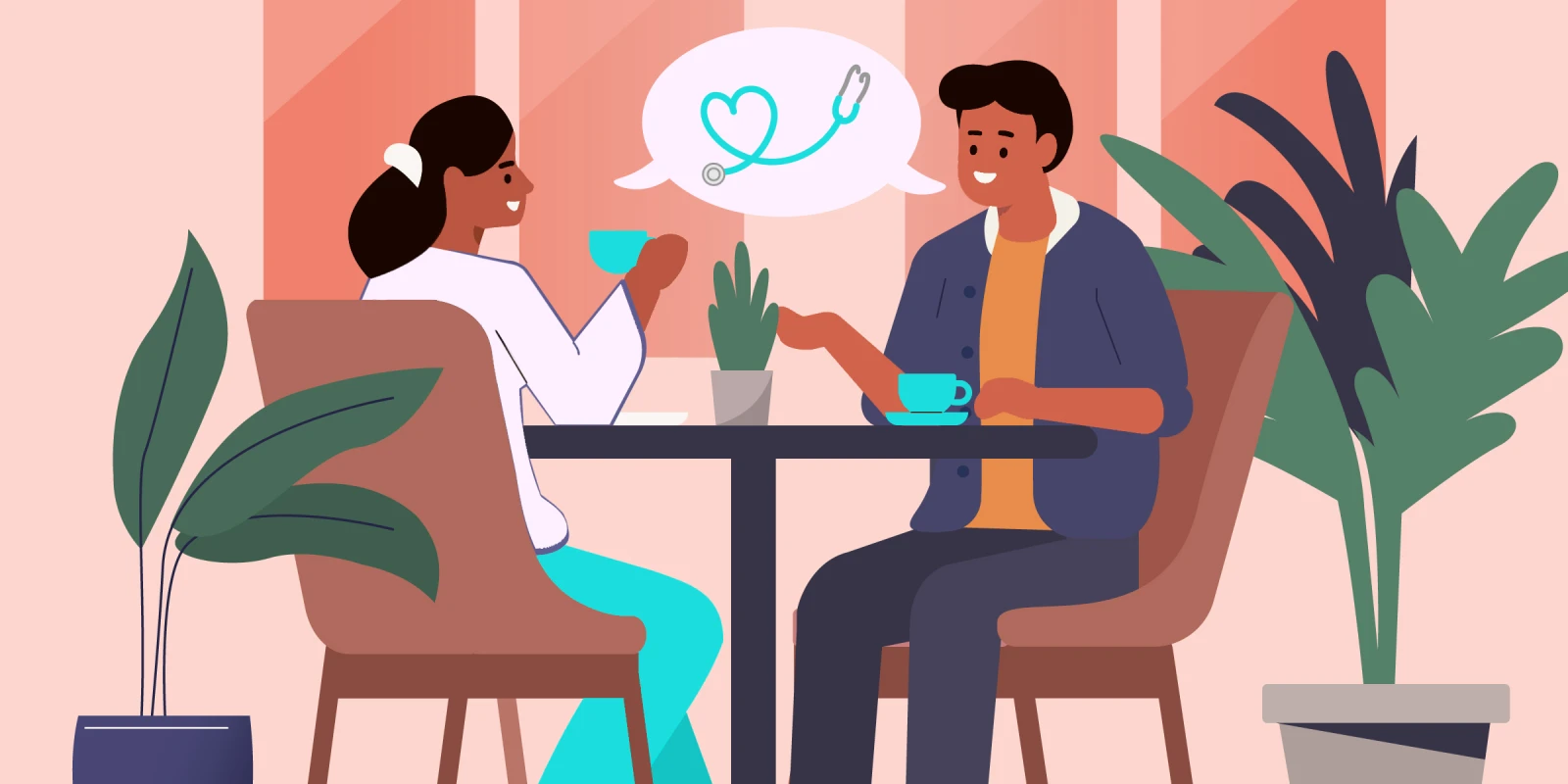In the past, several of my peers, residents, and even one or two attendings have asked if my boyfriend is also in medicine, to which I've replied, “Actually, he’s a software engineer.” Granted, my parents are both physicians and perhaps others assume I am trying to "keep it in the family." Alternatively, the assumption may come from the fact that many women in medicine date within their same field; apparently, one in four female doctors are married to other doctors.
But my partner is not in the medical field — and our interdisciplinary relationship has revealed unique aspects of dating outside of the medical bubble.
It was so perplexing because you have this 40-year-old with no real past medical history, who comes in with a septic knee and later develops MRSA bacteremia and abscesses in all her extremities. This one-liner rolls off my tongue, a formed habit since practicing them in the earlier days of medical school.
He listens on the other end of the phone, likely while washing the dishes or folding laundry. Then what? Just back to the ICU? And MRSA, hmmm … that’s the bacteria, right?
Truthfully, a lot of our conversations include definitions. Yeah, it’s a stubborn bug that’s built antibiotic resistance. I’ve explained when to suspect melanoma, the risk factors for an aspiration event, the components of borderline personality disorder, and how to deliver a placenta, along with other tidbits of information. Sometimes, I present information as fun facts from hours of studying, other times I answer my boyfriend’s questions (or correct misinformation, e.g., No, babe, your bruise on your arm would not be called a subdural hematoma.) My partner listens patiently, expanding his medical knowledge as I expand my own. Meanwhile, through daily definitions, I sharpen my own skill of translating medical jargon into laymen’s terms, which benefits my bedside communication with patients.
In addition to clinical definitions, I also explain the processes unique in becoming a doctor (hereafter, affectionately termed "med-splaining"). The STEP exams are national standardized exams that last seven hours, I explain the week before the scheduled dedicated period. Another time I take a stab at explaining the Match Day process, which I nervously anticipate (despite being months away): It’s an algorithm that helps fill residency spots based on mutual likeness; medical students rank their favorite programs and vice versa. One time, it was explaining the Alpha Omega Alpha honor society; another time it was explaining who carries the code pager.
These examples of med-splaining are necessary for my partner to understand all that I experience, work toward, and, at times, endure as a medical student. Given the stress and long hours, partners must be flexible with date nights, offer support when workloads become overwhelming, and offer encouragement of the wins, such as first-authorships or society inductions. But those outside of the medical field can provide a unique perspective when it comes to our daily deeds in the hospital.
When I tell my significant other about doing several rounds of chest compressions during as code, he responds in admiration. CPR is heroic. Forming relationships with patients and providing good care — even with medical students as the team — is heralded for its humanism. Admittedly, I can forget how incredibly rich these experiences can be: the privileged opportunity to take care of people and the compassionate service we provide on a regular basis. Partners outside of medicine see this with fresh eyes, void of any jadedness that may come from years in the field and all the hardships that may ensue. My boyfriend is impressed by the patient advocacy, the suturing, the baby deliveries, as well as the years of hard work, long hours, and breadth of knowledge. Dating outside of medicine has offered a fresh perspective on the daily work I do, and the perspective has served as a mirror to the work we do in health care, which we may occasionally fail to appreciate.
Teaching/learning about clinical concepts, explaining the steps in becoming a doctor or "med-splaining," and hearing refreshing perspectives on our daily humanistic deeds are unique aspects to dating outside the medical field. While dating within medicine may require fewer definitions over dinner, dating outside of medicine provides the opportunity to build connections through differences — work that also reveals a genuine commitment to the relationship, itself.
In terms of dating outside your field as a software engineer, I couldn’t say; you’d have to ask him!
Is your significant other in health care? How has that impacted your relationship and you as a clinician?
Sarah Marion is a new four-year medical student at UVA School of Medicine and is interested in medical storytelling. She studied Narrative Medicine at Brown and has since been part of several projects relating to cancer narratives, survivorship, and grief poetry.
Image by Irina_Strelnikova / Getty





